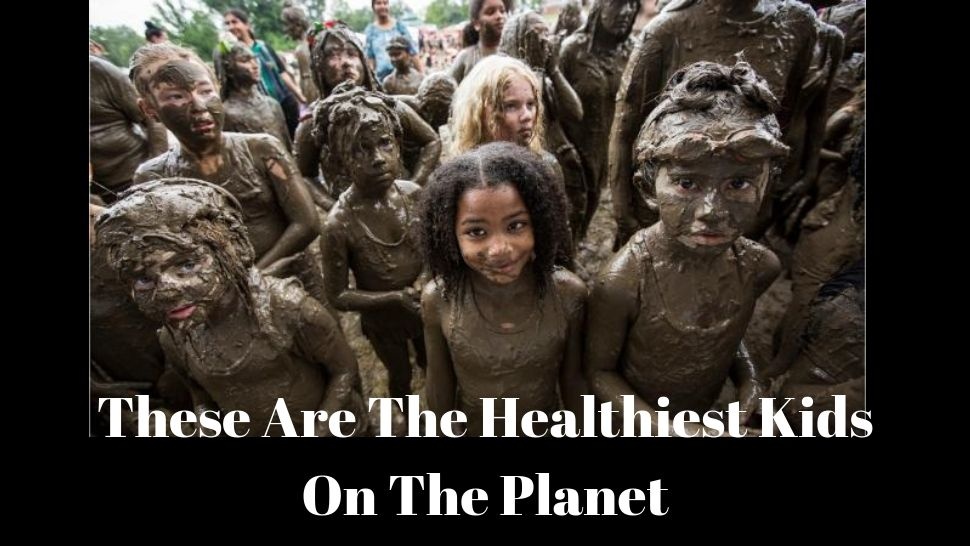They are constantly playing in mud and sand.
Many of us are happy to remember the childhood in which we reached the peak of creativity in the game with mud and sand!
The kids were fun, and the parents knew - where, for God's sake, has a child who is not dirty? They let us roll around in the sand, grass, mud, in the evening we bathe and the story is over. Not anger, no anguish for the stain, we all had things to play and stuff for when we go somewhere.
In addition to being fun, science has confirmed that the game in sand and mud is indeed good!

Many children today are alienated from nature
It is normal for parents to care for the hygiene and safety of the child, and many today prefer children to play in the house instead of outside. As a result, we get children who later have no desire to play in the open space, but prefer to choose the technology.
"Our children and children of our children are the generations most determined by nature in history," said Richard Louv, an author of the study who analyzed 3,000 families with children.

A little dirt has never harmed anyone
Pediatrician Dr. Maria Julia Russo de Carvalho agrees with Louv and insists that children must be in contact with microorganisms located in the soil and grass in order to develop their immune system properly. Cleaning for a child after a mud game may be tiring, but you must try to find the environment because these unhygienic games are necessary for your child.
When immunity improves in this way, in the future, the child will be more resistant to diseases and allergies. In addition, Louv says natural games stimulate creativity, minimize stress and depression, and enable better cognitive development.

The same applies to animals
A study published in the Professional Journal of Allergy and Clinical Immunology found that children living and growing up with animals like dogs and cats from the earliest age are less likely to develop allergies because these children live among endotoxins, the type of bacteria found in dust and the environment, which help to strengthen the immune system.

Simply - so the immunity works
The immune system is what protects man from external "attackers", such as microbes and bacteria that are a threat to health. This is successfully accomplished by detecting substances that can encourage disease and infection, and then fight them.
But in order to be successful, the immune system must be accustomed to microorganisms from the outside environment. As children grow, they become more resistant to certain microbes because they have already been exposed and immunity already "knows the enemy" and "tactics" to attack it.

Consequences of keeping children away from nature
Without contact with microorganisms, the immune system becomes more susceptible to substances that are otherwise not pathological, such as pollen or animal hair, after which children develop allergies. Richard Louv points out that keeping children away from nature limits the level of their creativity. Children who are not interacting with the natural environment have a lack of physical stimulus and have no direct experience in which they could further develop the imagination.
He also adds that staying in nature is phenomenal prevention of obesity because the children are physically active outdoors, while the cause of an obese childhood epidemic lies just in spending too much time behind closed doors.
Do you let your children play with mud and sand? Share with us your comments in the comments below!




Share the News